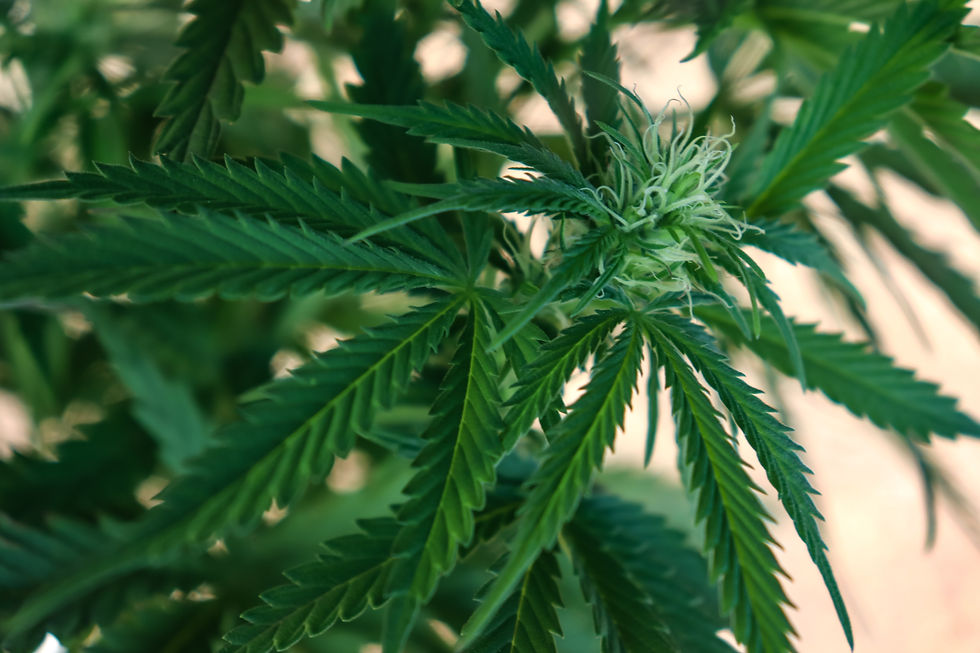Cannabis Legalization in Germany – Official Draft Law Published (5 July 2023)
- Malte Goetz

- Jul 18, 2023
- 4 min read
On 5 July 2023, the German federal ministry of health has officially published a draft law concerning the implementation of the so-called “first pillar” of the German government´s “two-pillar-plan” as a step in the legalization process of recreational cannabis.
It can be assumed that substantive changes will still be made before the law is possibly passed. Either way, the draft law is of interest for the industry:
What does the draft law entail? What are the main takeaways for the industry? What consequence could this have on the medicinal cannabis sector?

Summary
The core of the draft law is composed of
1. self-cultivation and
2. cultivation associations.
Any person over the age of 18 may privately cultivate up to three cannabis plants for personal consumption or up to three hemp plants for non-commercial use at the same time at their place of residence or habitual abode in Germany. The cannabis from private self-cultivation may not be passed on to third parties. An exception to this is made for adults in the area of the cultivating person's own home for immediate communal consumption. The propagation material, seeds or seedlings, may be obtained from the cultivation associations even as a non-member. Home-growers may purchase a maximum of seven seeds or, five seedlings, or a mix of seven seeds and seedlings per month. Growers must take appropriate safety precautions to prevent access by minors and third parties.
Cultivation associations are registered non-profit associations whose purpose is the collective cultivation and distribution of cannabis and propagation material for personal consumption. The operation of cultivation associations is subject to a permit, which is to be granted upon application if the specified requirements are met. Cultivation associations may pass on to each member a maximum of 25 grams of cannabis per day and a maximum of 50 grams per month. For adolescents (18-21 years old), the amount is limited to 30 grams per month; moreover, only cannabis with a THC content of up to 10% may be passed on to adolescents. Only persons over the age of 18 may become members. Each growers' association may have a maximum of 500 members, and a person may only be a member of one cultivation association. Cannabis may only be cultivated by members or “mini-job” employees (earning no more than EUR 520 per month) of the cultivation association. The commissioning of other third parties for cultivation is expressly prohibited. Cultivation associations shall ensure the principles of good professional practice. The Federal Ministry of Food and Agriculture is authorized, in agreement with other competent federal ministries, to specify further requirements for quality, cultivation methods and maximum quantities. For quality assurance purposes, the cultivation associations shall take regular random samples. Cultivation associations must fulfill extensive documentation and reporting obligations. The associations must also ensure comprehensive security and protection measures to prevent unauthorized third parties from accessing the products. They must also have a qualified authorized person to take care of matters relating to the protection of minors and addiction and prevention issues. The cultivation associations are subject to control by the authorities. The competent state authority regularly takes random samples and examines them for compliance with the law. The authority has far-reaching powers in the event of infringement, e.g., it can issue temporary bans on cultivation.
According to the draft law, there is an absolute advertising ban on cannabis and cannabis associations. A violation would result in an administrative offense.
Consequences for the Medical Cannabis Sector
Cannabis, THC and all the individual substances contained therein will be deleted from the Narcotics Act, which means that medical cannabis will no longer qualify as a narcotic, but only as a medicine. In practice, therefore, a narcotic prescription will assumedly no longer be necessary for the prescription of medical cannabis. Prescriptions will thus likely be redeemable for a longer period of time and cannabis would probably also be prescribable by e-prescription in the future, which is not yet possible for narcotics.
Medical cannabis law is restructured in the Medical Cannabis Act. However, there are no major, significant changes in content compared to the current legal situation. Relevant permits continue to be required for the distribution and importation of medical cannabis. Due to the removal of cannabis from the BtMG, the legal basis for the required permits will now be contained in the MedCanG. However, the provisions of the MedCanG mirror the previously applicable provisions.
Evaluation
The current draft law was prepared taking into account the intense and confidential discussions with the EU Commission as well as national political interests. The fact that cannabis cultivation and distribution will initially be exclusively possible on non-commercial basis adds many bureaucratic and unpractical hurdles to the law. For example, associations cannot "sell" the cannabis by the gram, but must release it free of charge in exchange for a monthly or yearly membership fee to comply with German association law – even though such monthly fee may be staggered according to allocated volumes. This will likely lead to difficulties in practice. In addition, it is still questionable in which spatial capacities the cultivation should take place, and who provides the infrastructure and necessary expertise to meet the quality requirements. Lastly, it is also unclear whether the state authorities will even have the capacity to approve and monitor the cannabis associations.
The draft law will now undergo the consultation process with the states and associations. According to the Federal Ministry of Health, the plan is to pass the bill in the federal cabinet during the summer break. The bill will then be introduced into the parliamentary legislative process and debated in both the German Bundestag and the Bundesrat in fall 2023. The German Bundestag is responsible for passing the final resolution on the bill. Entry into force is scheduled for the end of 2023.




Comments